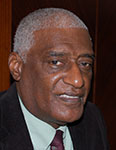The elections are over, and it’s time to examine how these results will affect the judiciary branch of government:
- U.S. Supreme Court
- The lower courts (such as the Appeals Courts)
- Special Courts (such as U.S. Tax Courts)
- Court Support Organizations (such as the U.S. Sentencing Commission)
Including the nine Supreme Court Justices, there are 874 judgeships in the judiciary branch—all of whom are appointed by the president with the advice and consent of the U.S. Senate. In that there are several significant social justice and human rights cases that are either currently on the Supreme Court’s calendar or are working their way through the lower courts, judicial appointments are very important to the advocacy community.
Same Sex Marriage
On December 7, 2012, the Supreme Court announced it would review two cases that are critical to determining the fate of same-sex marriage. The court will review California’s Proposition 8 (www.FindLaw.com/State-Laws), and decide whether married gay couples will have the same federal benefits as heterosexual couples. The Supreme Court will also rule on a provision of the Defense of Marriage Act (DOMA) (www.govtrack.us/congress/bills/104/hr3396) which states that homosexual and lesbian couples can not access a range of health and pension benefits, nor favorable tax treatment, to which heterosexual couples have a right. The rulings on both cases have been called “the biggest civil rights case of our generation.” (Emily Bazelon. www.slate.com). Both cases probably will be argued in March, with decisions expected by late June.
Voting Rights
Same sex marriage is not the only major social justice case that the Supreme Court has agreed to review during this session of the court. On November 11, 2012, the Supreme Court said it will review a key provision of the Voting Rights Act of 1965. (Huffington post (http://www.huffingtonpost.com/2012/12/11/eric-holder-voting-rights-act_n_2280553.html). The provision is the federal government’s most forceful tool in protecting minority rights at the polls. The decision ensures that race and civil rights will be the hallmark of the current Supreme Court term (Washington Post. (http://articles.washingtonpost.com/2012-11-09/politics/35506996_1_civil-rights-appeals-courts-minority-rights). The court will decide whether Congress exceeded its authority in 2006 when it reauthorized a requirement that states and localities with a history of discrimination—most of them in the South—receive federal approval before making any changes to their voting laws. The implications of this challenge to the landmark Voting Rights Act is enormous, especially given the voter suppression efforts in many states during the last presidential election.
What’s Next?
NASW anticipates that a number of other key social justice and human rights cases will eventually reach the Supreme Court during President Obama’s second term. These include:
- Challenges to a comprehensive immigration law that is expected to be passed in 2013.
- Several challenges to voting laws in a number of states, which advocates view as unfairly inhibiting minority, elderly and low-income citizens from voting.
- At least one law school admissions affirmation action case that will be heard by the court in its current session.
Learn more about these and other cases that affect social work clients at:
Leadership Conference for Civil Rights (LCCR) (http://www.civilrights.org/issues/)
SCOTUSBlog: (http://www.scotusblog.com/2012/12/on-same-sex-marriage-options-open/)
Lawyers Committee for Civil Rights (http://www.lawyerscommittee.org/)

Mel Wilson NASW Manager, Social Justice and Human Rights |



